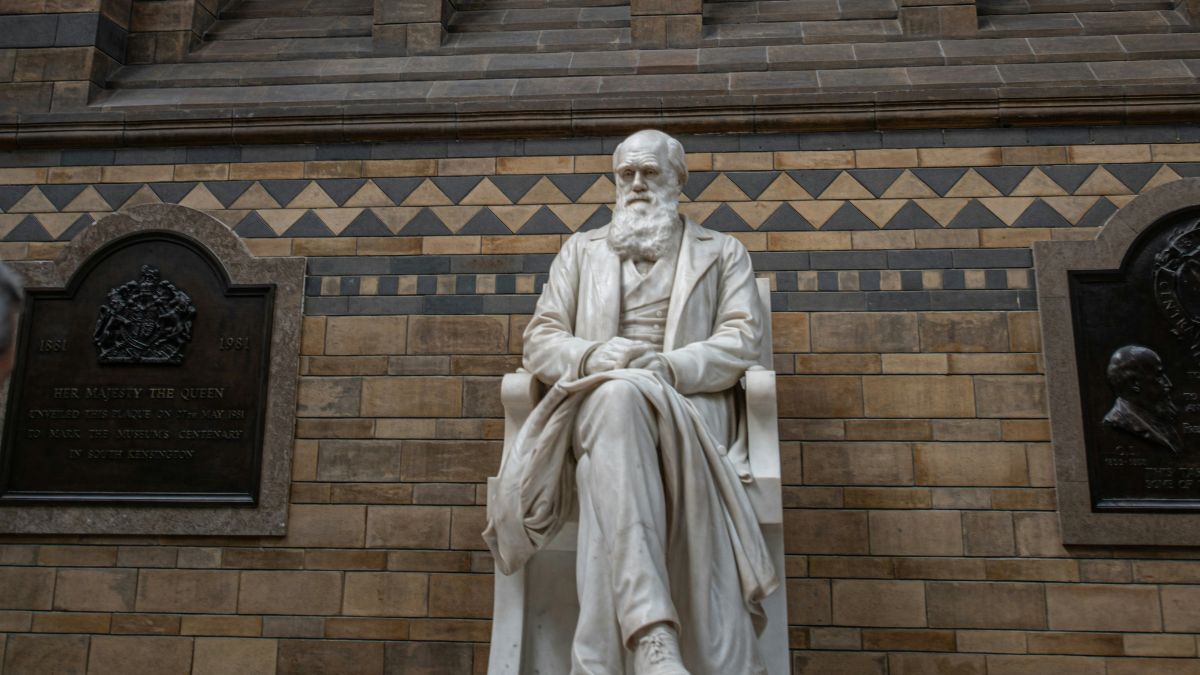The Moral Nightmare of Losing Our Religion
Authors: John Stonestreet and Dr. Timothy Padgett

Author: John Stonestreet and Shane Morris
In the opening pages of Orthodoxy, G. K. Chesterton likened modern philosophy to insanity. Its inherent circularity may appear to explain everything, but only because it makes reality very small. Those who claim matter and energy are all that exist, he wrote, have an “insane simplicity…the quality of the madman’s argument; we have at once the sense of it covering everything and leaving everything out.”
That’s an appropriate designation for this recent post on X by evolutionary biologist and Manhattan Institute fellow Colin Wright:
I am perplexed by people claiming that consciousness is metaphysical. We have absolutely no reason to believe that, and every reason to believe it’s a product of our physical brains…We have never observed a mind existing independent from a physical brain…I think we can safely conclude that consciousness is a natural, physical phenomenon.
Wright then recited the familiar materialist litany that the mind is nothing but the brain. After all, that organ’s activity can be monitored with fMRI, and specific regions of the brain can be linked with specific behaviors, emotions, and actions. If the brain is damaged, associated aspects of the person’s memory, abilities, or personality are affected. Therefore, the mind and consciousness of the person must be nothing more than a product of the brain and its activity.
It's a simple, tidy explanation . . . one that Chesterton would say has the telltale mark of insanity. It seems to cover everything, but only because it leaves out everything important. For instance, is love merely a mixture of neurotransmitters? Are justice and integrity arrangements of gray matter? Are true beliefs, or an eye for beauty, or the ability to grasp a mathematical theorem reducible to chemical reactions?
Even if matter and energy are the fundamental “stuff” of which everything is made, it would not follow that everything can be reduced to the sum of matter and energy. For example, a computer is composed of elements like silicon, gold, copper, and ceramic, but one will never get a MacBook from throwing the right amount of these materials into a heap. The organization of the materials is a function that requires an intelligence, and neither that nor the organizing blueprint it produces is itself, strictly material nor a product of material parts. It precedes them.
The software that runs the computer is also made up of information, including the instructions of programmers. Without it, the computer is useless. Even in materialist terms, software is not a product of hardware, but rather runs on that hardware.
Something even more wonderful happens with the human mind, something that neuroscience has demonstrated for years. Consider the pioneering experiments of Princeton physician Wilder Penfield, who in the 1970s used electrical probes to study the brains of over 1,000 living patients. Penfield discovered that although he could influence the physical movements of patients’ bodies, making them raise an arm or blink an eye, he could not make them intend these actions. Rather, they experienced the movements caused by the electrode in their brain as alien actions imposed on their bodies, sometimes against their wills. In other words, it was as if the patients’ consciousness was something related to but separate from the brain. This led Penfield to conclude that the brain is not the same as the mind.
An even simpler reason to discard materialist self-refuting arguments about the mind was offered by C.S. Lewis, in his book Miracles. In a materialist universe, he explained, everything has material causes. Even our very thoughts or what we call “consciousness” would be products of atoms bouncing around inside our skulls. If this is true, there could be no reason to assume that any of our thoughts bear any relation to what we call “truth.”
As Lewis put it,
A theory which explained everything else in the whole universe but which made it impossible to believe that our thinking was valid, would be utterly out of court… It would be an argument which proved that no argument was sound—a proof that there are no such things as proofs—which is nonsense.
Thus, if materialism were true, Wright and other materialists who insist the mind and the soul are nothing but mere products of the brain cannot trust these thoughts. Their thoughts about the brain, or anything else, would be products of material causes and no more significance than steam wafting from a bowl of oatmeal. In Chesterton’s terms, materialism is an insane idea precisely because, as it explains everything, it explains away everything—even itself.
On the other hand, being made in God’s image, free and responsible, is an explanation of humanity big enough for not only where our minds and thoughts came from, but why it matters at all.

Authors: John Stonestreet and Dr. Timothy Padgett

Authors: John Stonestreet and Dr. Timothy Padgett

Author: John Stonestreet